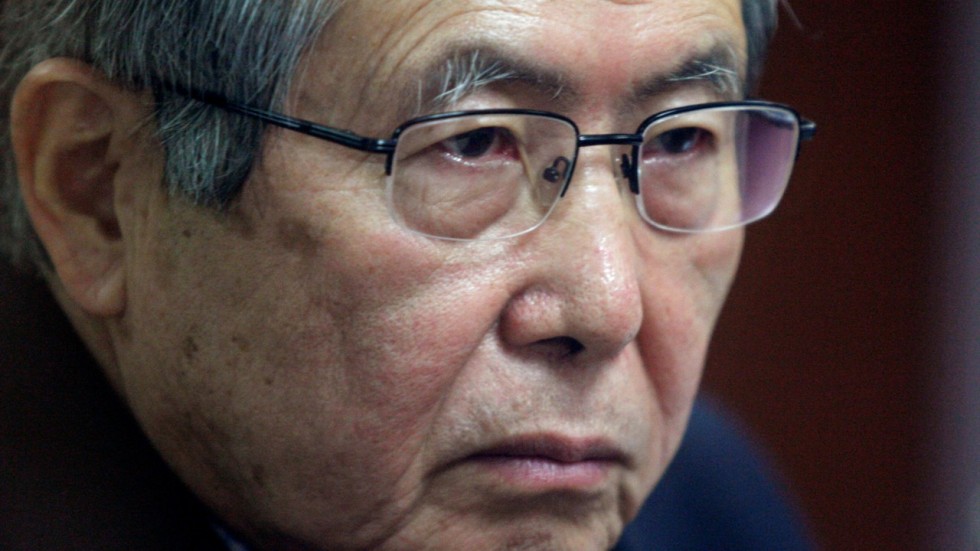






Washington, D.C., October 12, 2018 – The Center for Justice and International Law (CEJIL) and the Washington Office on Latin America (WOLA) express their concern about draft Law No. 3353/2018, presented this week to the Peruvian Congress by the Fujimorist Popular Force party, and its possible use for exonerating the effective enforcement of the prison sentence to former President Alberto Fujimori, convicted in 2009 to 25 years of jail as the perpetrator of grave violations of human rights.
This project, approved yesterday by the Peruvian Congress, was presented only a few days after the Supreme Court of Peru annulled the pardon unduly conceded to Fujimori in December of 2017, stating that the human rights of victims to truth, justice and reparation had been violated.
The project cited contemplates the humanitarian execution of the penalty through personal electronic surveillance outside the penitentiary establishment, for elderly and disabled persons. The groups benefited by this measure include males 75 years of age or older, who have served a third of the prison sentence and who have a serious or chronic illness accredited through legal medical expertise.
WOLA and CEJIL celebrate any legislative measure with has the effect of protecting the human rights of the elderly or disabled population who find themselves in detention centers, which could also reduce overcrowding and overpopulation in Peruvian prisons.
Nevertheless, this measure cannot, under any concept, be utilized as a mechanism of impunity before persons who have been condemned for international crimes, including crimes against humanity, as in the case of Ex-President Fujimori and other persons condemned for such violations. In that sense, article 5 of the project exclude the application of the humanitarian execution of the penalty for persons condemned for the most grave crimes, such as terrorism, treason, femicide, or participation in a criminal organization of persons who have committed a qualified homicide, enforced disappearance, torture and other crimes.
We recall that Fujimori was condemned for leading an organized power apparatus that committed disappearances, extrajudicial executions and tortures, and crimes qualified by the Peruvian justice system as crimes against humanity. These crimes are the most severe for violating human dignity and the international community, and therefore are not subject to statutes of limitations, amnesties, or other exemptions that generate impunity.
We also signal our concern that with this legislation, other persons condemned of grave violations against human rights like Vladimiro Montesinos, who was condemned in 2010 for the massacre of Barrios Altos, could benefit from this law.
Facing the pardon granted to Fujimori at the end of 2017, the Inter-American Court of Human rights clearly stated that prison benefits cannot be granted in the face of serious human rights violations, without a consideration of the impact on the rights of victims, which should assess whether the convicted person has fulfilled a significant part of their sentence, has paid civil reparation, or has assisted with the clarification of the truth, among other factors. Fujimori has still not complied with two thirds of his sentence, has never paid civil reparation imposed by the Peruvian tribunals, and has refused to provide information to clarify crimes. The family member of disappeared persons in the case of La Cantuta still do not know where the remains of their family members are, intentionally denying them the possibility of ameliorating their suffering.
Jo-Marie Burt, expert on Peru and Principal Advisor of WOLA signaled: “Since he was declared guilty, Fujimori has attempted in multiple ways to avoid complying with his sentence. This law represents a new technique of the Fujimoristas to again threaten the dignity of the victims and grant a benefit contrary to Peru’s international obligations. We hope that President Martin Vizcarra will oppose this bill and not sign it.”
Regarding this issue, Viviana Krsticevic, Executive Director of CEJIL declared that: “The Inter-American Court was very clear in signaling the conditions under which a pardon or benefits could be granted to Fujimori. The new law does not modify the order of the tribunal. International organizations maintain a very close watch on the situation and will not hesitate to return to international bodies again to defend the rights of the victims to effective justice.”
Help us continue this critical and urgent work with a donation!
DONATE NOW